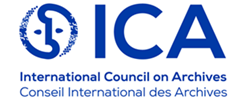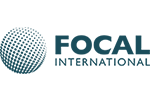2017 FIAT-IFTA World Conference
“ Living in the Digital Age; Connecting Roots and Cultures”
Mexico City, 18-21 October 2017
The 2017 FIAT/IFTA World Conference, hosted by the Fonoteca Nacional, in collaboration with TV UNAM and the SPR, National Broadcast System, will take place in Mexico City from 18-21 October.
40 years ago FIAT/IFTA was founded by a small group of television archives seeking to establish a new forum for collaboration and pooling of expertise and knowledge within the emerging television archive sector, focusing attention on the preservation and use of analog films and tapes. Today, digital audiovisual content is ubiquitous, all consuming and multiplying at a rapid pace. It is produced and exchanged constantly by ever more people. Communication and interactions are also increasing in a multi-media form enabled by new and flourishing digital technologies. Living in the digital age poses huge questions and challenges to all organisations managing audiovisual content for preservation, future access and re-use. As media archives, how do we continue to capture the present, preserve the past and make it all available for the future with such an increasing amount of digital contents surrounding us? Where does our domain begin and end?
As every year, the 2017 conference will provide a unique occasion for archives to discuss & learn about the challenges, approaches, solutions and innovations in use and technologies to help strengthen and grow the value of the professional archive four decades on. Different aspects of the archive’s lifecycle, use and potential value will be presented enabling participants to grasp what has been done and what will be possible in the future. Special emphasis will be put on exchanges and discussions with experts through round-tables for a deeper understanding of subjects and themes. Reflections on the 40 years of FIAT/IFTA will be woven into the programme.
The conference will run over 3 days organised into the following sessions:
- Keynote speakers
- Plenary sessions
- Workshops
- Case study sessions
- Expert-led themed tables
Call for presentations
Presentations should be based on user experiences, new initiatives or perspectives, striking conclusions, successes and also failures; the main objective is to share knowledge and results with FIAT/IFTA members in order to understand the lessons learned and new challenges or solutions arising. Most sessions will consist of four 20 minutes presentations plus time for discussion and questions.
The following list of topics reflects current interests and evolutions; other suggestions for subjects which are not mentioned in the call are welcome, please send them to us so we can get a better understanding of the needs of our members.
If you would like to present during the 2017 World Conference please send us an abstract of the presentation (15 to 20 lines) and a short bio (5 to 10 lines). The selection of presentations will be made in June by the program organisation team. The presenters will receive an email after this selection.
Contributions should be sent to: office@fiatifta.org
The deadline for presenting propositions is May 31 2017.
Our Core Themes
- Archives and their users: creative re-use, curation, academic research, Multi-media storytelling and big data journalism: central concepts for a contemporary audiovisual archive.
- The user-oriented approach: driven by demand, tailored to the target group. New archival platforms for specific audiences
- Archive as a place of creation: web documentaries based on archival material and other new forms of archive valorisation
- Multi-media storytelling – digital storytelling and multimedia narrative using archival footage
- Archival strategy in a network environment: the audiovisual archive, its funders, its customers and its partners.
- Making your mark: internal advocacy strategies for archives within a broadcaster
- Making your money: external funding strategies
- Breaching the fortress walls: production archives on commercial clouds, broadcaster’s archives as parts of a national heritage
- New platforms, new models for archives? How are the big players in the new market place for television content managing these archives?
- A region rapidly evolving: trends and challenges for inter-culturalism and audiovisual archives in Latin America
- Defying degradation and obsolescence: particular circumstances, particular solutions
- Local cultures in a globalised world: engaging new audiences with a common past
- Collaboration as a strategy: regional, national, continental connections
- Media Management: Embracing Automation, Enhancing Discoverability Case studies, User experiences, changing workflows and new roles in a 3rd generation MAM environment.
- MAMs as a Service, MAMs in the cloud: the transition from monolithic blocs to micro services and service oriented architectures
- Flying in, flying out: the archivist as an organisation-wide media traffic controller
- Diversified strategies for metadata creation: harvesting production metadata, automated enrichment, user generated and consumer generated metadata
- Open, Share, Engage and Measure The challenges of publishing content for multiple audiences on multiple platforms.
- Keeping track of versions and formats: developing a technically fitting offer for every platform and every target group
- Next levels of rights management: harvesting data, enabling re-use
- From clicks and eyeballs to useful user data: what can you learn from your user stats? How to turn simple figures into real business intelligence?
- Transformation in the digital age: sustainability, digital preservation and large-scale transcoding and/or rewrapping:
- The quest for a sustainable format and codec: reconciling preservation and production needs: what will the future bring?
- Transcoding project management: deciding, planning, testing, executing, controlling and evaluating
- Preservation watchdogs: checking sustainability and file integrity in large-scale digital archives
2017 FIAT-IFTA World Conference
“ Living in the Digital Age; Connecting Roots and Cultures”
Mexico City, 18-21 October 2017
The 2017 FIAT/IFTA World Conference, hosted by the Fonoteca Nacional, in collaboration with TV UNAM and the SPR, National Broadcast System, will take place in Mexico City from 18-21 October.
40 years ago FIAT/IFTA was founded by a small group of television archives seeking to establish a new forum for collaboration and pooling of expertise and knowledge within the emerging television archive sector, focusing attention on the preservation and use of analog films and tapes. Today, digital audiovisual content is ubiquitous, all consuming and multiplying at a rapid pace. It is produced and exchanged constantly by ever more people. Communication and interactions are also increasing in a multi-media form enabled by new and flourishing digital technologies. Living in the digital age poses huge questions and challenges to all organisations managing audiovisual content for preservation, future access and re-use. As media archives, how do we continue to capture the present, preserve the past and make it all available for the future with such an increasing amount of digital contents surrounding us? Where does our domain begin and end?
As every year, the 2017 conference will provide a unique occasion for archives to discuss & learn about the challenges, approaches, solutions and innovations in use and technologies to help strengthen and grow the value of the professional archive four decades on. Different aspects of the archive’s lifecycle, use and potential value will be presented enabling participants to grasp what has been done and what will be possible in the future. Special emphasis will be put on exchanges and discussions with experts through round-tables for a deeper understanding of subjects and themes. Reflections on the 40 years of FIAT/IFTA will be woven into the programme.
The conference will run over 3 days organised into the following sessions:
- Keynote speakers
- Plenary sessions
- Workshops
- Case study sessions
- Expert-led themed tables
Call for presentations
Presentations should be based on user experiences, new initiatives or perspectives, striking conclusions, successes and also failures; the main objective is to share knowledge and results with FIAT/IFTA members in order to understand the lessons learned and new challenges or solutions arising. Most sessions will consist of four 20 minutes presentations plus time for discussion and questions.
The following list of topics reflects current interests and evolutions; other suggestions for subjects which are not mentioned in the call are welcome, please send them to us so we can get a better understanding of the needs of our members.
If you would like to present during the 2017 World Conference please send us an abstract of the presentation (15 to 20 lines) and a short bio (5 to 10 lines). The selection of presentations will be made in June by the program organisation team. The presenters will receive an email after this selection.
Contributions should be sent to: office@fiatifta.org
The deadline for presenting propositions is May 31 2017.
Our Core Themes
- Archives and their users: creative re-use, curation, academic research, Multi-media storytelling and big data journalism: central concepts for a contemporary audiovisual archive.
- The user-oriented approach: driven by demand, tailored to the target group. New archival platforms for specific audiences
- Archive as a place of creation: web documentaries based on archival material and other new forms of archive valorisation
- Multi-media storytelling – digital storytelling and multimedia narrative using archival footage
- Archival strategy in a network environment: the audiovisual archive, its funders, its customers and its partners.
- Making your mark: internal advocacy strategies for archives within a broadcaster
- Making your money: external funding strategies
- Breaching the fortress walls: production archives on commercial clouds, broadcaster’s archives as parts of a national heritage
- New platforms, new models for archives? How are the big players in the new market place for television content managing these archives?
- A region rapidly evolving: trends and challenges for inter-culturalism and audiovisual archives in Latin America
- Defying degradation and obsolescence: particular circumstances, particular solutions
- Local cultures in a globalised world: engaging new audiences with a common past
- Collaboration as a strategy: regional, national, continental connections
- Media Management: Embracing Automation, Enhancing Discoverability Case studies, User experiences, changing workflows and new roles in a 3rd generation MAM environment.
- MAMs as a Service, MAMs in the cloud: the transition from monolithic blocs to micro services and service oriented architectures
- Flying in, flying out: the archivist as an organisation-wide media traffic controller
- Diversified strategies for metadata creation: harvesting production metadata, automated enrichment, user generated and consumer generated metadata
- Open, Share, Engage and Measure The challenges of publishing content for multiple audiences on multiple platforms.
- Keeping track of versions and formats: developing a technically fitting offer for every platform and every target group
- Next levels of rights management: harvesting data, enabling re-use
- From clicks and eyeballs to useful user data: what can you learn from your user stats? How to turn simple figures into real business intelligence?
- Transformation in the digital age: sustainability, digital preservation and large-scale transcoding and/or rewrapping:
- The quest for a sustainable format and codec: reconciling preservation and production needs: what will the future bring?
- Transcoding project management: deciding, planning, testing, executing, controlling and evaluating
- Preservation watchdogs: checking sustainability and file integrity in large-scale digital archives












